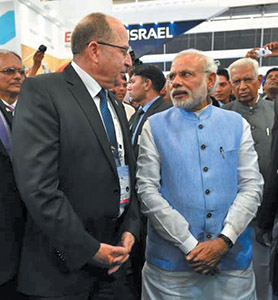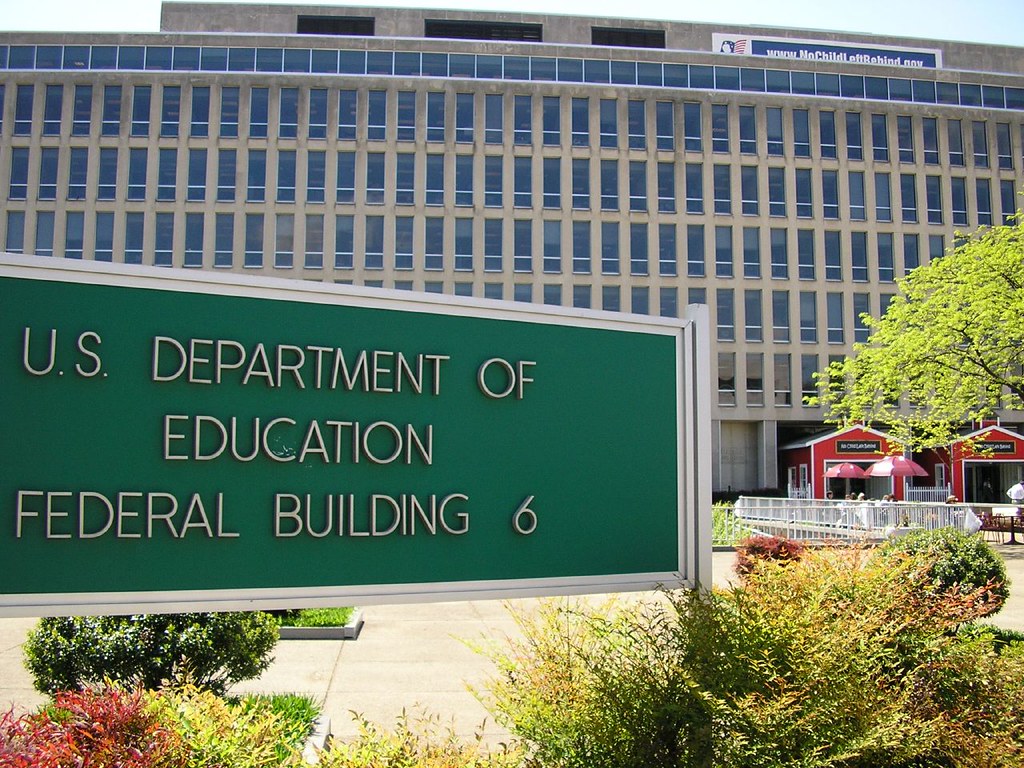
Ya’alon visits aviation exhibition as Modi vows to end India status as top defense importer
i24tvnews—Israel’s Defense Minister Moshe Yaalon last Wednesday attended the biennial Aero India show, which is at the center of India’s military modernization plans. He spoke at the opening of Israel’s stand at the aviation exhibition in the southern city of Bangalore, saying “Once again we are witnessing the Israeli defense industry’s capacity for innovation.
“Israeli companies are working together with the Administration for the Development of Weapons and Technological Infrastructure to fortify the security of the State of Israel, the strengthening of the IDF, and to maintain the qualitative edge we have over our enemies.”
Addressing the ties with India, Ya’alon said the bilateral relations “have grown stronger in recent times. I am proud to be the first defense minister who visits here and meets with senior government officials, whose leadership and vision to lead India seeks prosperity and growth.
The Israeli official has met with India’s Prime Minister Narendra Modi, who vowed to end India’s status as the world’s number one defense importer, saying he wanted 70 percent of hardware to be manufactured domestically by the turn of the decade.
Modi told hundreds of foreign and local businessmen that his government would favor domestic firms when awarding defense contracts as part of a larger push to boost India’s manufacturing sector. “We have the reputation as the largest importer of defense equipment in the world,” the prime minister added. “That may be music to the ears of some of you here. But this is one area where we would not like to be number one. We are reforming our defense procurement policies and there will be a clear preference for the equipment manufactured in India.”
In addition to Modi, Ya’alon has met with his Indian, British and Czech counterparts. Reacting to Modi’s speech, the Israeli embassy said the country was open to technology transfer and joint production of hardware with India.
India, which has long been the world’s largest buyer of defense equipment, is in the midst of a multi-billion-dollar upgrade of its ageing military hardware and recently lifted a cap on foreign investment in defense.
While his right-wing government has pledged to push forward with planned military purchases, which stalled under the previous center-left Congress administration, Modi is determined that does not come at the expense of the domestic defense industry.
The premier said he wanted domestically made equipment to account for 70 percent of the procurement budget within five years, up from the current 40 percent, in what he said would be a major boon to the economy. “A nation with a strong defense industry will not only be more secure. It will also reap rich economic benefits,” said Modi. He also said he wanted global firms to invest in India, for example by transferring some technology to local firms, as part of negotiating their lucrative deals to sell hardware.
He said India’s offset policy, which requires foreign contractors to invest a percentage of the value of their deal in India, needed further reform. “I want our offsets policy not as a means to export low-end products, but to acquire state-of-the art technology and skills in core areas of priority,” Modi said.
The five-day show, which is held at an air base on the city’s northern outskirts, attracts the bosses of hundreds of aviation and defense firms. France’s Rafale is among fighter jets, transport and other planes showcased at the air show as it attempts to seal a long-delayed $12-billion deal to supply 126 of the jets to India. India chose French company Dassault Aviation in January 2012 for exclusive negotiations for the jets but successive deadlines to complete one of the world’s biggest defense contracts have slipped by.
Defense Minister Manohar Parrikar said he has ordered a report by next month from the government’s contract negotiation committee (CNC) into the deal amid reports of cost concerns. “I have asked the CNC to speed up the process of completion of the report for us to take a decision on the acquisition of Rafale,” he told reporters at the show. “The CNC is reviewing the long-term costs or the life-cycle costs, incurred over the life of the fighter.”
France’s defense minister, Jean-Yves Le Drian, is due in India next week to discuss the deal.
India’s Business Standard newspaper, citing unnamed sources, reported this week the deal was in trouble over the new government’s apparent discovery that Dassault’s bid was higher than that of its rival, the Eurofighter Typhoon. The US has the largest contingent at this year’s show, with 64 companies including Boeing.
The United States displaced traditional ally Russia as India’s top supplier of armaments in 2013 and Washington and New Delhi renewed their 10-year Defense Framework Agreement during Barack Obama’s visit last month aimed at fostering stronger trade ties.
(With AFP)











